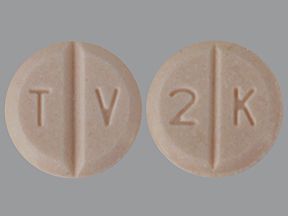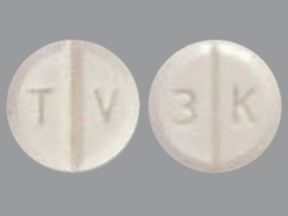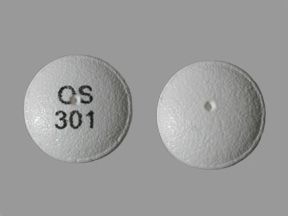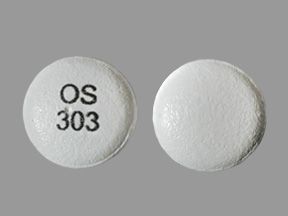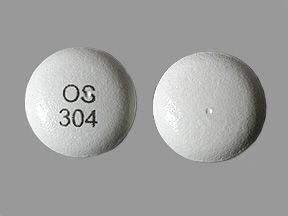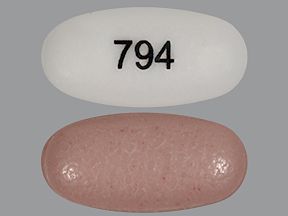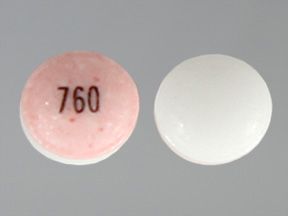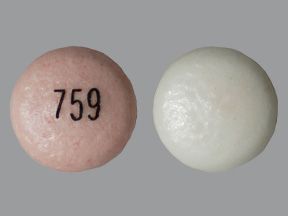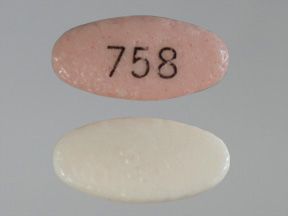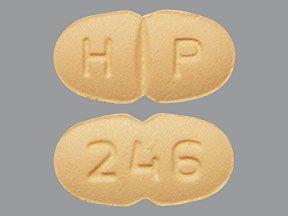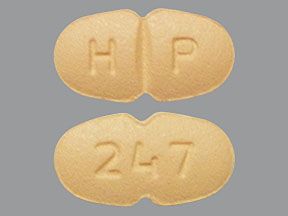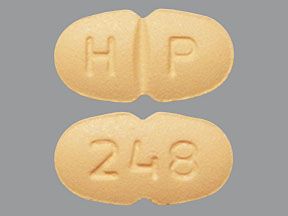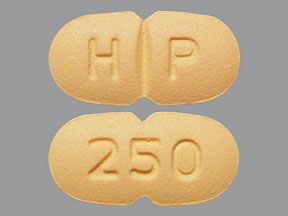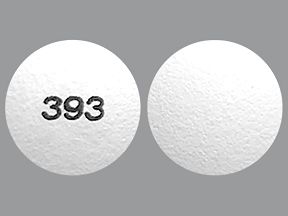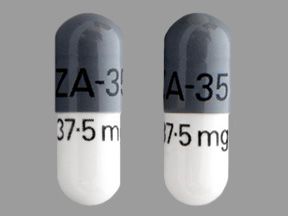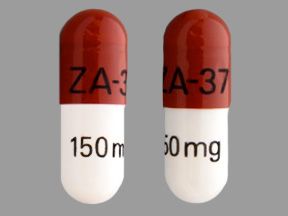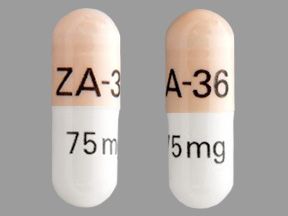Venlafaxine ER oral capsule is a prescription medication.
It’s an antidepressant approved for use in adults to treat the following conditions:
- generalized anxiety disorder
- social anxiety disorder
- panic disorder, with or without agoraphobia (fear of situations in which you think it would be difficult to leave or get help if you have a panic attack)
- major depressive disorder, which is often called depression or clinical depression
Drug details
Venlafaxine belongs to a class of antidepressants called serotonin-norepinephrine reuptake inhibitors (SNRIs). (A class of drugs is a group of medications that work in a similar way.)
Venlafaxine ER oral capsules are an extended-release form of venlafaxine. Extended-release drugs release their medication slowly as they pass through your digestive system. This is unlike immediate-release drugs, which release their medication more quickly.
You’ll take venlafaxine ER oral capsules by mouth once a day. They’re available in three strengths:
- 37.5 milligrams (mg)
- 75 mg
- 150 mg
Note: Venlafaxine also comes as immediate-release tablets and extended-release tablets. This article addresses only venlafaxine ER oral capsules. For information on venlafaxine’s other forms, talk with your doctor or pharmacist.
Brand-name versions
Venlafaxine ER oral capsule is a generic drug. It’s also available as a brand-name version called Effexor XR.
Effectiveness
For information about the effectiveness of venlafaxine ER oral capsules, see the “Venlafaxine ER oral capsule uses” section below.
Venlafaxine ER oral capsule is a generic drug. A generic drug is an exact copy of the active drug in a brand-name medication. Effexor XR is the brand-name medication that venlafaxine ER oral capsule is based on. A generic is considered to be as safe and effective as the original drug. Generics tend to cost less than brand-name drugs.
If you’re interested in using Effexor XR instead of venlafaxine ER oral capsules, talk with your doctor. They can tell you if Effexor XR comes in strengths that can be used for your condition. If you have insurance, you’ll also need to check whether your plan will cover Effexor XR.
To learn more about how generics compare with brand-name drugs, see this article.
Venlafaxine ER oral capsules can cause mild or serious side effects. The following lists contain some of the key side effects that may occur while taking venlafaxine ER oral capsule. These lists do not include all possible side effects.
For more information about the possible side effects of venlafaxine ER oral capsule, talk with your doctor or pharmacist. They can give you tips on how to deal with any side effects that may be concerning or bothersome.
Note: The Food and Drug Administration (FDA) tracks side effects of drugs it has approved. If you would like to notify the FDA about a side effect you’ve had with venlafaxine ER oral capsules, you can do so through MedWatch.
Mild side effects
Mild side effects* of venlafaxine ER oral capsules can include:
- sleepiness
- nausea and vomiting
- constipation
- dry mouth
- sweating
- loss of appetite
- blurred vision
- headache
- trouble sleeping
- dizziness
- sexual problems, such as reduced sex drive, erectile dysfunction, and abnormal ejaculation†
Most of these side effects may go away within a few days or a couple of weeks. But if they become more severe or don’t go away, talk with your doctor or pharmacist.
* This is a partial list of mild side effects from venlafaxine ER oral capsules. To learn about other mild side effects, talk with your doctor or pharmacist, or view venlafaxine ER oral capsules’ prescribing information.
† For more information about this side effect, see “Side effect details” below.
Serious side effects
Serious side effects from venlafaxine ER oral capsules aren’t common, but they can occur. Call your doctor right away if you have serious side effects. Call 911 or your local emergency number if your symptoms feel life threatening or if you think you’re having a medical emergency.
Serious side effects and their symptoms can include:
- Serotonin syndrome (a dangerous condition caused by a buildup of serotonin in your body). Symptoms can include:
- fast heartbeat
- dizziness
- sweating
- flushing (temporary warmth, redness, or deepening of skin color)
- tremor or twitching
- stiff muscles
- loss of coordination
- nausea or vomiting
- diarrhea
- agitation
- hallucinations (seeing or hearing things that aren’t really there)
- seizures
- Bleeding more easily than usual. Symptoms can include:
- nosebleeds
- bruising easily
- heavy periods
- tiny red, brown, or purple spots on your skin
- vomiting blood, which may look red, pink, or like coffee grounds
- passing blood in stools, which may look red, black, or like tar
- Closed-angle glaucoma (a sudden buildup of pressure inside your eye). Symptoms can include:
- seeing halos around lights
- blurred vision
- eye pain or redness
- sudden severe headache
- nausea
- Hyponatremia (low level of sodium in your blood). Symptoms can include:
- headache
- confusion
- trouble concentrating
- memory problems
- feeling weak and unsteady, which can lead to falls
- Mania or hypomania. Symptoms can include:
- severe trouble sleeping
- extreme levels of happiness, excitement, or activity
- racing thoughts
- impulsive or reckless behavior
- talking more or faster than usual
- Lung problems, such as interstitial lung disease or eosinophilic pneumonia (pneumonia associated with a high level of blood cells called eosinophils). Symptoms can include:
- cough
- shortness of breath
- chest discomfort
- Seizures. Symptoms may include:
- convulsions (uncontrolled muscle contractions that look like a jerking motion)
- loss of consciousness
- dizziness
- Increased blood pressure, which usually doesn’t cause symptoms unless it’s severe.
- Increased level of cholesterol or other fats called triglycerides in your blood, which typically doesn’t cause symptoms.
- Allergic reaction.*
- Suicidal thoughts or actions in young people.*†
* For more information about this side effect, see “Side effect details” below.
† Venlafaxine ER oral capsules have a
Side effect details
Here’s some detail on certain side effects this drug may cause.
Suicidal thoughts or actions in young people
Having depression or anxiety disorders, which venlafaxine treats, increases your risk for having suicidal thoughts or actions. But for certain people, taking antidepressants can increase these risks early on during treatment.
Studies show that in people younger than 25 years of age, antidepressants, including venlafaxine, can increase the risk of suicidal thoughts and actions. These risks are higher during the first few months of treatment and after any dosage changes.
In fact, venlafaxine ER oral capsules have a
Suicidal thoughts and actions are rare in young people taking venlafaxine. But it’s important for you, and possibly your caregiver, to be aware of the possible signs and symptoms. These may include:
- worsening depression or anxiety
- agitation or restlessness
- anger, aggression, or irritability
- other unusual or sudden changes in your mood, thoughts, or behaviors
- thoughts about dying or harming yourself
- trying to harm yourself or attempt suicide
Antidepressants don’t increase the risk of suicidal thoughts and actions in older adults. Studies have found that antidepressants reduced the risk of suicidal thoughts or actions in adults ages 25 years and older.
What you can do
You should be aware that venlafaxine may not start to improve your condition for at least 2 to 4 weeks after you start taking it. Even after this time, it’s still possible for your condition to get worse and for you to develop suicidal thoughts or actions.
If you have any of the symptoms listed above while you’re taking venlafaxine, talk with your doctor right away. Caregivers of young people taking venlafaxine should also watch for these symptoms. And they should talk with the young person’s doctor right away about any concerns.
If your doctor thinks venlafaxine could be making your condition worse, they’ll likely recommend switching you to a different antidepressant. However, it’s important that you only do this if it’s recommended by your doctor, and they monitor you.
Do not change your dosage or stop venlafaxine on your own. If you suddenly stop taking venlafaxine, it could cause withdrawal symptoms. See “Venlafaxine ER oral capsule withdrawal and dependence” below to learn more about this.
Suicide prevention
If you know someone at immediate risk of self-harm, suicide, or hurting another person:
- Ask the tough question: “Are you considering suicide?”
- Listen to the person without judgment.
- Call 911 or the local emergency number, or text TALK to 741741 to communicate with a trained crisis counselor.
- Stay with the person until professional help arrives.
- Try to remove any weapons, medications, or other potentially harmful objects.
If you or someone you know is having thoughts of suicide, a prevention hotline can help. The 988 Suicide and Crisis Lifeline is available 24 hours a day at 988. During a crisis, people who are hard of hearing can use their preferred relay service or dial 711 then 988.
Sexual side effects
You may have sexual side effects while you’re taking venlafaxine ER oral tablets. Sexual side effects are some of the more common side effects reported with this drug.
Examples of sexual side effects that have been reported with venlafaxine include:
- reduced sex drive in males and females*
- trouble reaching orgasm in males and females
- erectile dysfunction (trouble getting or keeping an erection) in males
- abnormal ejaculation in males
Sexual problems are also common in people with depression or anxiety disorders, which venlafaxine is used to treat. They’re also common with many other antidepressants besides venlafaxine.
* Sex and gender exist on spectrums. Use of the terms “male” and “female” in this article refers to sex assigned at birth.
If you have sexual problems while you’re taking venlafaxine, be sure to talk with your doctor.
These issues can cause embarrassment for many people. However, your doctor has likely managed these problems many times before. They may recommend switching you to a different type of antidepressant. Or they may have other suggestions that can help with the side effects.
It’s important that you do not suddenly stop taking venlafaxine ER oral capsules if you have sexual side effects. Suddenly stopping venlafaxine could cause withdrawal symptoms. (See “Venlafaxine ER oral capsule withdrawal and dependence” below to learn more about this.) Instead, tell your doctor if you have any concerns with this medication.
Allergic reactionAs with most drugs, some people can have an allergic reaction after taking venlafaxine ER oral capsules.
Symptoms of a mild allergic reaction can include:
- skin rash
- itchiness
- flushing (temporary warmth, redness, or deepening of skin color)
A more severe allergic reaction is rare but possible. Symptoms of a severe allergic reaction can include:
- swelling under your skin, typically in your eyelids, lips, hands, or feet
- swelling of your tongue, mouth, or throat
- trouble breathing
Call your doctor right away if you have an allergic reaction to venlafaxine ER oral capsules, as the reaction could become severe. Call 911 or your local emergency number if your symptoms feel life threatening or if you think you’re having a medical emergency.
The dosage of venlafaxine ER oral capsules your doctor prescribes will depend on several factors. These include:
- the type and severity of the condition you’re using the drug to treat
- your kidney and liver function
- other medical conditions you may have
Typically, your doctor will start you on a low dosage. Then they’ll adjust it over time to reach the amount that’s right for you. Your doctor will ultimately prescribe the smallest dosage that provides the desired effect.
The following information describes dosages that are commonly used or recommended. However, be sure to take the dosage your doctor prescribes for you. Your doctor will determine the best dosage to fit your needs.
Drug strengths
Venlafaxine ER oral capsules are taken by mouth. They’re available in three strengths:
- 37.5 milligrams (mg)
- 75 mg
- 150 mg
Venlafaxine ER oral capsules are an extended-release form of venlafaxine. Extended-release drugs release their medication slowly as they pass through your digestive system. This is unlike immediate-release drugs, which release their medication more quickly.
Dosage for generalized anxiety disorder
The usual starting dosage of venlafaxine ER oral capsules for generalized anxiety disorder (GAD) is 75 mg once daily.
In some cases, your doctor may have you start treatment with 37.5 mg once daily, for 4 to 7 days. After this, your doctor will increase your dosage to 75 mg once daily.
Gradually increasing your dosage in this way can help your body get used to the medication more easily. If needed, your doctor may gradually increase your dosage until you’ve reached the dosage that’s right for you.
The maximum dose recommended for GAD is 225 mg once daily.
Dosage for social anxiety disorder
The usual dosage of venlafaxine ER oral capsules for social anxiety disorder is 75 mg once daily. This is the maximum recommended dosage for social anxiety disorder.
Dosage for panic disorder
The usual starting dosage of venlafaxine ER oral capsules for panic disorder is 37.5 mg once daily. You’ll take this starting dose for 7 days. Then your doctor will increase your dosage to 75 mg once daily.
If needed your doctor may gradually increase your dosage until you’ve reached the dosage that’s right for you. Gradually increasing your dosage in this way can help your body get used to the medication more easily.
The maximum dose recommended for panic disorder is 225 mg once daily.
Dosage for depression
The usual starting dosage of venlafaxine ER oral capsules for depression is 75 mg once daily.
In some cases, your doctor may have you start treatment with 37.5 mg once daily, for 4 to 7 days. After this your doctor will increase your dosage to 75 mg once daily.
Gradually increasing the dosage in this way can help your body get used to the medication more easily.
If your condition doesn’t start to improve after you’ve taken 75 mg once daily for at least 2 weeks, you may need a higher daily dose. Your doctor may gradually increase your dosage until you’ve reached the dosage that’s right for you.
The maximum dose recommended for depression is 225 mg once daily. In some cases, daily doses of 300 mg or higher may be needed. But taking this dose would be considered an off-label use of the medication. (Off-label drug use means using a drug in a way that hasn’t been approved.)
What if I miss a dose?
If you miss a dose of venlafaxine ER oral capsules, take the missed dose as soon as possible. But if it’s nearly time for your next scheduled dose, skip the missed dose. Then, just take your next dose as scheduled. Do not take extra doses to make up for missed doses.
To help make sure that you don’t miss a dose, try using a medication reminder. This can include setting an alarm or timer on your phone or downloading a reminder app. A kitchen timer can work, too.
Will I need to use this drug long term?
Yes, if you and your doctor determine that venlafaxine ER oral capsules are safe and effective for your condition, you’ll likely take the drug long term.
Exactly how long you’ll need to take venlafaxine for depends on the condition being treated and how well it responds to the medication.
Here are some general timelines on treatment with venlafaxine:
- For depression, guidelines recommend that you keep taking venlafaxine for 4 to 9 months after your depression symptoms are relieved. Doing so reduces the risk of your depression coming back. If you’ve had several episodes of depression, the condition is more likely to come back if you stop taking an antidepressant, such as venlafaxine. In this case, your doctor will likely recommend that you take venlafaxine long term.
- For generalized anxiety disorder, guidelines recommend that you take venlafaxine for at least 1 year after your condition improves. This reduces the risk of your anxiety coming back.
- For panic disorder, guidelines recommend that you take venlafaxine for at least 1 year after your condition improves. This reduces the risk of your panic attacks coming back.
- For social anxiety disorder, guidelines don’t specify a recommended length of time for treatment. Talk with your doctor about how long you should take venlafaxine for this condition.
Venlafaxine ER oral capsules can cause drug dependence. With drug dependence, your body relies on the effect of a drug to function normally. When your body is dependent on a drug, you may have withdrawal symptoms if you suddenly stop taking the drug.
It’s important to note that drug dependence isn’t the same as drug addiction. With addiction, you find it hard to stop using a drug, even though it may be causing you harm.
You’re more likely to have withdrawal symptoms after stopping venlafaxine if you’ve been taking it for a long time or at a high dose.
Possible withdrawal symptoms
Examples of withdrawal symptoms that can occur if you suddenly stop taking venlafaxine include:
- headache
- feeling pins and needles or electric shock sensations
- dizziness
- trouble with coordination or balance
- nausea, vomiting, or diarrhea
- irritability and agitation
- feeling uneasy or confused
- anxiety
- mood swings
- trouble sleeping or nightmares
- loss of appetite
- twitching or tremor
To avoid withdrawal symptoms, you should not suddenly stop taking venlafaxine ER oral capsules. If you and your doctor agree that you should stop taking this medication, you’ll need to do so slowly. Your doctor will gradually reduce your daily dose, usually over several weeks. This will allow your body to adjust to not having the medication.
If you have withdrawal symptoms while stopping venlafaxine, talk with your doctor. You can usually get withdrawal relief if your doctor increases your daily dose back to a level where you didn’t have withdrawal symptoms. After that, your doctor can reduce your dose more slowly to help avoid withdrawal symptoms from happening again.
You should avoid drinking alcohol while you’re taking venlafaxine ER oral capsules. Venlafaxine can cause sleepiness, dizziness, and blurred vision. Drinking alcohol with venlafaxine could make these side effects worse.
Additionally, alcohol can also worsen symptoms of depression and anxiety disorders, which venlafaxine is used to treat.
If you’re concerned about avoiding alcohol while taking venlafaxine, talk with your doctor.
Venlafaxine ER oral capsule can interact with several other medications. It can also interact with certain herbs and supplements.
Different interactions can cause different effects. For instance, some interactions can interfere with how well a drug works. Other interactions can increase side effects or make them more severe.
Venlafaxine ER oral capsule and other medications
Below are lists of medications that can interact with venlafaxine ER oral capsules. These lists do not contain all drugs that may interact with venlafaxine ER oral capsules.
Before taking venlafaxine ER oral capsules, talk with your doctor and pharmacist. Tell them about all prescription, over-the-counter, and other drugs you take. Also tell them about any vitamins, herbs, and supplements you use. Sharing this information can help you avoid potential interactions.
If you have questions about drug interactions that may affect you, ask your doctor or pharmacist.
Drugs that should not be taken with venlafaxine ER oral capsules
Drugs that you should not take with venlafaxine ER oral capsules include:
- Monoamine oxidase inhibitors (MAOIs). Taking venlafaxine with MAOIs can cause a serious side effect called serotonin syndrome. (This is a dangerous condition caused by a buildup of serotonin in your body.) MAOIs that you should not take with venlafaxine include:
- linezolid (Zyvox), which is an antibiotic
- methylene blue (Provayblue), which is a blood disorder treatment
- antidepressants,* such as:
- phenelzine (Nardil)
- isocarboxazid (Marplan)
- tranylcypromine (Parnate)
- selegiline (Emsam)
* You should not take venlafaxine ER oral capsules if you’ve taken an MAOI antidepressant within the last 14 days. And, you should not take an MAOI antidepressant until at least 7 days have passed since you stopped taking venlafaxine ER oral capsules.
Other drugs that interact with venlafaxine ER oral capsules
In addition to those listed just above, other drugs may interact with venlafaxine ER oral capsules. These drugs include:
- Serotonergic drugs. These drugs can increase the level of serotonin in your brain. Taking venlafaxine with serotonergic drugs can increase the risk of a serious side effect called serotonin syndrome. Examples of serotonergic drugs include:
- selective serotonin reuptake inhibitor (SSRI) antidepressants, such as paroxetine (Paxil), sertraline (Zoloft), and citalopram (Celexa)
- serotonin-norepinephrine reuptake inhibitor (SNRI) antidepressants, other than venlafaxine, such as duloxetine (Cymbalta) and desvenlafaxine (Pristiq)
- tricyclic antidepressants, such as amitriptyline, desipramine (Norpramin), and imipramine (Tofranil)
- lithium (Lithobid), which treats bipolar disorder and depression
- buspirone, which treats anxiety
- triptan medications, which treat migraine, such as almotriptan, eletriptan (Relpax), frovatriptan (Frova), naratriptan (Amerge), rizatriptan (Maxalt), sumatriptan (Imitrex), and zolmitriptan (Zomig)
- certain pain medications, such as tramadol (ConZip, Ultram) and fentanyl (Duragesic, Subsys, Actiq, others)
- amphetamine drugs, such as amphetamine (Evekeo, Adzenys, Dyanavel), amphetamine and dextroamphetamine (Adderall, Mydayis), dextroamphetamine (Dexedrine), methamphetamine (Desoxyn), and lisdexamfetamine (Vyvanse)
- Anticoagulants. Anticoagulants (blood thinners) are used to treat and prevent blood clots. Taking venlafaxine with anticoagulants can increase the risk of bleeding. Examples of these drugs include:
- Nonsteroidal anti-inflammatory drugs (NSAIDs).NSAIDs reduce inflammation and pain. Taking venlafaxine with NSAIDs can increase the risk of bleeding. Examples of these drugs include:
Venlafaxine ER oral capsule and herbs and supplements
Taking certain herbs and supplements with venlafaxine ER oral capsules can increase your risk for a serious side effect called serotonin syndrome. Examples of herbs and supplements that can increase this include:
If you’re interested in taking herbs or supplements with venlafaxine, talk with your doctor or pharmacist first.
Venlafaxine ER oral capsule and foods
There aren’t any foods that have been specifically reported to interact with venlafaxine ER oral capsules. If you have any questions about eating certain foods with venlafaxine, talk with your doctor.
Venlafaxine ER oral capsule and lab tests
Venlafaxine can cause false-positive results on urine drug tests for phencyclidine (PCP) and amphetamines, including methamphetamine.
This means that while you’re taking venlafaxine, your urine can test positive for PCP or amphetamines, even if you didn’t take either of these drugs. Your urine can also test positive for these drugs for several days after you stop taking venlafaxine.
If you need to have a drug test while you’re taking venlafaxine ER oral capsules, be sure to tell the person giving the test that you’re taking this medication. They’ll use this information when interpreting your test results.
If you have a positive result for PCP or amphetamines on a urine test, a different type of test can be done to rule out the use of these drugs.
Here are answers to some frequently asked questions about venlafaxine ER oral capsule.
Does venlafaxine cause weight gain or weight loss?
Weight gain and weight loss weren’t reported in people who took venlafaxine during clinical studies. However, adults who took venlafaxine during the studies commonly reported a loss of appetite. If you lose your appetite, it could lead to weight loss over time.
Depression and anxiety disorders, which venlafaxine treats, often cause changes in appetite and eating patterns. And both can lead to either weight gain or weight loss.
If you’re concerned about weight gain or weight loss while you’re taking venlafaxine, talk with your doctor. They can suggest ways to help you maintain a body weight that’s healthy for you.
Is venlafaxine used for hot flashes, migraine, or ADHD?
Yes, venlafaxine is sometimes used for hot flashes, migraine, and attention deficit hyperactivity disorder (ADHD). But these are off-label uses for this drug.
Off-label drug use means using a drug for a purpose other than those that have been approved. Doctors may prescribe a drug for an off-label use if there’s evidence that the drug can be effective for that use.
In females, venlafaxine is used off-label to treat hot flashes due to menopause or the use of certain breast cancer treatments.* And in males, it’s also used off-label to treat hot flashes due to certain prostate cancer treatments.*
Venlafaxine is also sometimes used off-label to help people who get frequent migraine episodes.
The drug is occasionally used off-label to treat ADHD in adults.
If you’re interested in taking venlafaxine for any off-label uses, talk with your doctor.
* Sex and gender exist on spectrums. Use of the terms “male” and “female” in this article refers to sex assigned at birth.
How do you successfully come off venlafaxine?
If you and your doctor agree that you should stop taking venlafaxine, you’ll need to slowly taper off the drug. If you suddenly stop taking it, you may have withdrawal symptoms.
When it’s time to stop taking venlafaxine, your doctor will gradually reduce your dose, usually over several weeks. Doing so allows your body to adjust to not having the medication. And it can help you avoid withdrawal symptoms.
To read more about stopping venlafaxine, see the “Venlafaxine ER oral capsule withdrawal and dependence” section above.
What’s venlafaxine’s classification? Is it an SSRI?
No, venlafaxine isn’t a selective serotonin reuptake inhibitor (SSRI).
SSRIs are a class of antidepressants. (A class of drugs is a group of medications that work in a similar way.) They work by increasing levels of a chemical in your brain called serotonin.
Venlafaxine, on the other hand, belongs to a class of antidepressants called serotonin-norepinephrine reuptake inhibitors (SNRIs). SNRIs work by increasing levels of two chemicals in your brain: serotonin and norepinephrine.
Will venlafaxine make me feel ‘high’?
No, that’s unlikely.
Taking venlafaxine to treat a mental health condition, at the dosage prescribed by your doctor, won’t make you feel high. But it won’t make you feel instantly happy or calm, either.
The drug works over a long period of time to help balance chemicals in your brain. Over time, this helps you get back to feeling like yourself again.
Will I need any screening or monitoring while taking venlafaxine?
Yes, you might. You doctor may screen you for certain conditions before prescribing venlafaxine for you. And they may monitor you for certain side effects while you’re taking the drug.
For example, if you have depression, your doctor may screen you for bipolar disorder before prescribing venlafaxine. Sometimes an episode of depression is the first symptom of bipolar disorder. But if venlafaxine is used on its own to treat depression in someone with bipolar disorder, it could trigger mania.
So, your doctor will want to be reasonably sure that you don’t have bipolar disorder before they prescribe venlafaxine to treat your depression. Your doctor will talk with you about any past mental health conditions you or your close family members have had.
While you’re taking venlafaxine, your doctor may check your blood pressure from time to time. They’ll typically do this after you start treatment and after any dosage increases. You may also need to have blood tests from time to time to check your cholesterol level. This is because venlafaxine may affect your blood pressure and cholesterol.
To read more about possible side effects from venlafaxine, see the “Venlafaxine ER oral capsule side effects” section above.
Should I be concerned if I see particles in my stool while I’m taking venlafaxine?
No, there’s no need to worry if you see particles in your stool while you’re taking venlafaxine ER oral capsule. These particles don’t contain any active medication.
Venlafaxine ER oral capsules are an extended-release form of venlafaxine. Extended-release drugs release their medication slowly in your body. This is unlike immediate-release drugs, which release their medication more quickly.
Venlafaxine ER oral capsules contain pellets of medication that have a special coating around them. This coating releases the medication slowly over the day as the pellets pass through your digestive system.
The pellets themselves may not fully dissolve. But by the time they leave your body in stool, all of the medication will have been released and absorbed by your body.
The Food and Drug Administration (FDA) approves prescription drugs such as venlafaxine ER oral capsules to treat certain conditions. Venlafaxine ER oral capsules may also be used off-label for other conditions. Off-label drug use means using a drug for a purpose other than what it’s been approved for by the FDA.
Venlafaxine ER oral capsule for generalized anxiety disorder
Venlafaxine ER oral capsules are FDA-approved to treat generalized anxiety disorder (GAD) in adults.
GAD is both a common and serious mental health condition. It can significantly affect your daily life. With GAD you have excessive and ongoing worries, fears, or concerns about everyday life.
Symptoms of GAD may include:
- long-lasting, excessive, and uncontrollable worries or fears
- intrusive thoughts
- trouble concentrating or sleeping
- feeling restless, irritable, or on edge
- fatigue (lack of energy)
- tense muscles
- heart palpitations
- sweating
- nausea or diarrhea
Effectiveness for generalized anxiety disorder
Venlafaxine ER oral capsules are an effective treatment for GAD. They’re recommended as a first treatment option for GAD in American Academy of Family Physicians guidelines.
To find out how venlafaxine ER oral capsules performed in clinical studies, see the drug’s prescribing information.
Venlafaxine ER oral capsule for social anxiety disorder
Venlafaxine ER oral capsules are FDA-approved to treat social anxiety disorder (SAD) in adults.
SAD is also known as social phobia. With this condition, you have intense worries and fears about social situations or performing in front of people. SAD can cause you to avoid certain situations or being around people who cause you anxiety. SAD can significantly affect your daily life and your ability to form relationships with people.
Symptoms of SAD may include:
- fear of embarrassment or of being judged by others
- intense anxiety in certain situations
- panic attacks, which may cause:
- fast or pounding heartbeat
- shaking or trembling
- sweating
- nausea
- trouble breathing
- chest pain
- dizziness or faintness
Effectiveness for social anxiety disorder
Venlafaxine ER oral capsules are an effective treatment for SAD. They’re recommended as a first treatment option for SAD in Anxiety & Depression Association of America guidelines.
To find out how venlafaxine ER oral capsules performed in clinical studies, see the drug’s prescribing information.
Venlafaxine ER oral capsule for panic disorder
Venlafaxine ER oral capsules are FDA-approved to treat panic disorder, with or without agoraphobia, in adults.
Panic disorder is both a common and serious mental health condition. It can have a significant impact on your daily life. With panic disorder, you have recurrent unexpected panic attacks. Fear of having a panic attack can make you avoid places or situations that you think might trigger one. This can lead to agoraphobia.
Agoraphobia is an intense fear of situations where you think it would be difficult to leave or get help if you have a panic attack. Examples of these situations may include using public transport, being in a crowd, being in open or closed spaces, or leaving home by yourself.
Symptoms of panic attacks can include:
- sudden feelings of intense fear
- shaking or trembling
- dizziness
- nausea
- sweating
- fast or pounding heartbeat
- trouble breathing
- chest pain
Effectiveness for panic disorder
Venlafaxine ER oral capsules are an effective treatment for panic disorder. They’re recommended as a first treatment option for panic disorder in American Academy of Family Physicians guidelines.
To find out how venlafaxine ER oral capsules performed in clinical studies, see the drug’s prescribing information.
Venlafaxine ER oral capsule for depression
Venlafaxine ER oral capsules are FDA-approved to treat major depressive disorder (MDD) in adults.
MDD is usually called depression, or sometimes, clinical depression. It’s a serious but common mental health condition that can significantly affect your daily life. MDD can happen without any obvious reason, or it may be triggered by life events, such as losing someone close to you.
Symptoms of depression may include:
- feeling extremely sad, gloomy, or hopeless for long periods of time
- losing interest in activities you used to enjoy
- trouble concentrating or sleeping
- feeling anxious or irritable
- extreme fatigue (lack of energy)
- appetite changes
Effectiveness for depression
Venlafaxine ER oral capsules are an effective treatment for depression. They’re recommended as a first treatment option for depression in American Psychiatric Association guidelines.
To find out how venlafaxine ER oral capsules performed in clinical studies, see the drug’s prescribing information.
Venlafaxine ER oral capsule and children
Venlafaxine ER oral capsule isn’t FDA-approved for use in people younger than 18 years of age.
Venlafaxine may increase the risk of suicidal thoughts and actions in children. In fact, the drug has a boxed warning from the Food and Drug Administration (FDA) about this side effect. A
On rare occasions, doctors may prescribe this drug off-label for certain children. (Off-label drug use means using a drug in a way that hasn’t been approved.) But this should only be done if other treatments haven’t been effective.
Venlafaxine ER oral capsules are used to treat:
What happens with depression, panic disorder, and anxiety disorders
When you have depression, panic disorder, or an anxiety disorder, there’s an imbalance in the levels of certain chemicals in your brain. These chemicals, serotonin and norepinephrine, are called neurotransmitters.
Neurotransmitters are natural chemicals in your body that help pass messages between your nerve cells. Serotonin and norepinephrine are involved in passing messages that affect your mood, emotions, perceptions, and behaviors.
What venlafaxine oral ER capsule does
Venlafaxine belongs to a class of drugs called serotonin norepinephrine reuptake inhibitors (SNRIs). A class of drugs is a group of medications that work in a similar way.
How a drug works is called its mechanism of action. Venlafaxine works by increasing levels of serotonin and norepinephrine in your brain. Over time, this balances the nerve messages being sent in your brain. And it helps improve symptoms of depression and anxiety disorders.
Venlafaxine ER oral capsule is an extended-release form of venlafaxine. It releases its medication slowly over the day as the capsule passes through your digestive system.
How long does it take to work?
Venlafaxine starts working soon after you take your first dose. However, it can take 2 to 4 weeks before it builds up enough in your system to improve your condition.
It’s really important to keep taking venlafaxine every day, even if you don’t think it’s making much difference at first. But if you feel that your condition is getting worse, or you have any thoughts about suicide or harming yourself, tell your doctor right away.*
* Venlafaxine ER oral capsules have a
How long does it stay in your body?
Venlafaxine has a half-life of about 5 hours. The half-life of a drug describes how long it takes for your body to clear half of a dose of the drug. Based on its half-life, venlafaxine stays in your body for about 1 day after it’s taken.
However, when your liver breaks down venlafaxine, it creates an active metabolite called ODV. (An active metabolite has the same effect as the original drug.) ODV has a half-life of about 11 hours. Based on this, ODV stays in your body for just over 2 days.
Other drugs are available that can treat your condition. Some may be a better fit for you than others. If you’re interested in finding an alternative to venlafaxine ER oral capsules, talk with your doctor. They can tell you about other medications that may work well for you.
Note: Some of the drugs listed here are used off-label to treat these specific conditions. Off-label drug use means using a drug for a purpose other than what’s been approved.
Alternatives for generalized anxiety disorder
Examples of other drugs that may be used to treat generalized anxiety disorder include:
- selective serotonin reuptake inhibitor (SSRI) antidepressants such as:
- escitalopram (Lexapro)
- fluoxetine (Prozac)
- paroxetine (Paxil)
- sertraline (Zoloft)
- serotonin-norepinephrine reuptake inhibitor (SNRI) antidepressants, other than venlafaxine, such as:
- duloxetine (Cymbalta)
- tricyclic antidepressants such as:
- amitriptyline
- imipramine (Tofranil)
- nortriptyline (Pamelor)
- benzodiazepines such as
- alprazolam (Xanax)
- clonazepam (Klonopin)
- diazepam (Valium)
- lorazepam (Ativan)
- buspirone
- pregabalin (Lyrica)
- quetiapine (Seroquel)
Alternatives for social anxiety disorder
Examples of other drugs that may be used to treat social anxiety disorder include:
- SSRI antidepressants such as:
- citalopram (Celexa)
- escitalopram (Lexapro)
- fluoxetine (Prozac)
- fluvoxamine
- paroxetine (Paxil)
- sertraline (Zoloft)
- gabapentin (Neurontin)
- pregabalin (Lyrica)
- benzodiazepines such as
- alprazolam (Xanax)
- clonazepam (Klonopin)
Alternatives for panic disorder
Examples of other drugs that may be used to treat panic disorder include:
- SSRI antidepressants such as:
- escitalopram (Lexapro)
- fluoxetine (Prozac)
- fluvoxamine
- paroxetine (Paxil)
- sertraline (Zoloft)
- tricyclic antidepressants such as:
- amitriptyline
- imipramine (Tofranil)
- nortriptyline (Pamelor)
- benzodiazepines such as
- alprazolam (Xanax)
- clonazepam (Klonopin)
- lorazepam (Ativan)
- beta-blockers such as:
Alternatives for depression
Examples of other drugs that may be used to treat depression include:
- SNRI antidepressants, other than venlafaxine, such as:
- SSRI antidepressants such as:
- paroxetine (Paxil)
- citalopram (Celexa)
- sertraline (Zoloft)
- escitalopram (Lexapro)
- vortioxetine (Trintellix)
- tricyclic antidepressants such as:
- amitriptyline
- imipramine (Tofranil)
- nortriptyline (Pamelor)
- clomipramine (Anafranil)
- other antidepressants such as:
- bupropion (Wellbutrin SR or XL)
- mirtazapine (Remeron)
- trazodone
- maprotiline
- vilazodone (Viibryd)
Taking more than the recommended dosage of venlafaxine ER oral capsules can lead to serious side effects. Do not take more venlafaxine than your doctor recommends.
Overdose symptoms
Symptoms of an overdose of venlafaxine ER oral capsules can include:
- sleepiness
- dizziness
- nausea and vomiting
- tingling sensations or feeling of pins and needles in your arms and legs
- numbness in your hands and feet
- episodes of feeling hot or cold
- fast or slow heart rate
- dilated pupils
What to do in case of overdose
If you think you’ve taken too much of this drug, call your doctor. You can also call the American Association of Poison Control Centers at 800-222-1222 or use their online tool. But if your symptoms are severe, call 911 or your local emergency number, or go to the nearest emergency room right away.
It’s not known if venlafaxine ER oral capsules are safe to take during pregnancy. The medication hasn’t been studied in pregnant people.
In animal studies, venlafaxine caused fetal harm when it was given to pregnant females. However, animal studies don’t always predict what will happen in humans.
There have been reports of certain complications in babies exposed to venlafaxine during the third trimester. These complications include:
- breathing problems
- feeding problems
- seizures
- problems controlling body temperature
- tremor
- irritability
- constant crying
However, if depression isn’t treated during pregnancy, serious problems can happen for the parent and the baby. Keep in mind that venlafaxine ER oral capsules are used for depression.
If you’re pregnant or planning to become pregnant, talk with your doctor. They can tell you about the possible risks and benefits of taking venlafaxine during pregnancy.
It’s not known if venlafaxine ER oral capsules are safe to take during pregnancy. If you’re sexually active and you or your partner can become pregnant, talk with your doctor about your birth control needs while you’re using venlafaxine ER oral capsules.
For more information about taking venlafaxine ER oral capsules during pregnancy, see the “Venlafaxine ER oral capsule and pregnancy” section above.
You should not breastfeed while you’re taking venlafaxine ER oral capsules. Venlafaxine passes into breast milk, and it could cause side effects in a child who’s breastfed.
If you’re breastfeeding, talk with your doctor about other healthy ways to feed your child while you’re taking venlafaxine. If you want to keep breastfeeding, ask your doctor if there are other medications for your condition that are safe to take while breastfeeding.
As with all medications, the cost of venlafaxine ER oral capsules can vary. The actual price you’ll pay depends on your insurance plan, your location, and the pharmacy you use.
Keep in mind that you may be able to get a 90-day supply of venlafaxine ER oral capsule. If approved by your insurance company, getting a 90-day supply of the drug could reduce your number of trips to the pharmacy and help lower the cost. If you’re interested in this option, check with your doctor or your insurance company.
Before approving coverage for venlafaxine ER oral capsule, your insurance company may require you to get prior authorization. This means your doctor and insurance company will need to communicate about your prescription before the insurance company will cover the drug. The insurance company will review the prior authorization request and decide if the drug will be covered.
If you’re not sure if you’ll need to get prior authorization for venlafaxine ER oral capsule, contact your insurance company.
Financial and insurance assistance
Financial assistance to help you pay for venlafaxine ER oral capsules may be available.
Medicine Assistance Tool and NeedyMeds are two websites offering resources that may help decrease the price you pay for venlafaxine ER oral capsules. They also offer tools to help you find low-cost healthcare, as well as educational resources. To learn more, visit their sites.
Mail-order pharmacies
Venlafaxine ER oral capsules may be available through a mail-order pharmacy. Using this service may help lower the drug’s cost and allow you to get your medication without leaving home.
If recommended by your doctor, you may be able to receive a 90-day supply of venlafaxine ER oral capsules, so there’s less concern about running out of the medication. If you’re interested in this option, check with your doctor and your insurance company. Some Medicare plans may help cover the cost of mail-order medications.
If you don’t have insurance, you can ask your doctor or pharmacist about online pharmacy options.
You should take venlafaxine ER oral capsules according to the instructions your doctor or healthcare professional gives you.
When to take
Venlafaxine ER oral capsules should be taken once a day, either in the morning or the evening. Try to be consistent with the time of day that you take this medication.
To help make sure you don’t miss a dose, try using a medication reminder. This can include setting an alarm or timer on your phone or downloading a reminder app. A kitchen timer can work, too.
Taking Venlafaxine ER oral capsule with food
You should take venlafaxine ER oral capsules with food.
Can Venlafaxine ER oral capsule be crushed, split, or chewed?
Venlafaxine ER oral capsules should not be crushed or chewed, because this would damage the extended-release action of the medication.
Extended-release drugs release their medication slowly as they pass through your digestive system. This is unlike immediate-release drugs, which release their medication more quickly.
If you have trouble swallowing the capsules whole, you can carefully split them open and sprinkle the pellets on a spoonful of applesauce. You should then swallow the mixture of pellets and applesauce without chewing it. If you chew the pellets, you can damage their extended-release action.
Drink a glass of water after taking the pellets and applesauce mixture to make sure you’ve swallowed all the medication.
This drug comes with several precautions.
FDA warning: Suicidal thoughts and actions in young people
This drug has a boxed warning. This is the most serious warning from the Food and Drug Administration (FDA). A
Antidepressants, including venlafaxine ER oral capsules, can increase the risk of suicidal thoughts and actions in people younger than 25 years of age. This risk is higher during the first few months of treatment and after any dosage changes.
Venlafaxine ER oral capsules aren’t approved for use in people younger than 18 years of age.
While taking venlafaxine, talk with your doctor right away if you feel that your depression or anxiety is getting worse. Also, let your doctor know if you feel agitated, restless, angry, or irritable. And tell them if you have any unusual or sudden changes in your mood, thoughts, or behaviors.
If you have thoughts about dying or harming yourself, tell your doctor right away. If you try to harm yourself or attempt suicide, call 911 or your local emergency number. Caregivers of young people taking venlafaxine should also watch for these symptoms. And they should tell the young person’s doctor right away if there are any concerns.
Other precautions
Before taking Venlafaxine ER oral capsules, talk with your doctor about your health history. Venlafaxine ER oral capsules may not be right for you if you have certain medical conditions or other factors affecting your health. These include:
- Allergic reaction. If you’ve had an allergic reaction to venlafaxine oral ER capsules or any of their ingredients, you should not take venlafaxine ER oral capsules. You also should not take them if you’ve had an allergic reaction to a similar antidepressant called desvenlafaxine (Pristiq). Ask your doctor what other medications are better options for you.
- Kidney problems. Your kidneys help remove venlafaxine from your body. If your kidneys don’t work well, venlafaxine can build up in your body and increase your risk for side effects. If you have kidney problems, your doctor may prescribe a dose of venlafaxine that’s lower than usual.
- Liver problems. Your liver breaks down venlafaxine to help remove the drug from your body. If your liverdoesn’t work well, venlafaxine can build up in your system and increase your risk for side effects. If you have liver problems, your doctor may prescribe a dose of venlafaxine that’s lower than usual.
- History of bipolar disorder, mania, or hypomania. If you or a close family member have had these mental health conditions in the past, venlafaxine may not be safe for you. The drug could increase your risk for having a manic episode. Venlafaxine isn’t approved to treat depression in people with bipolar disorder. Before starting venlafaxine, talk with your doctor about any mental health conditions you and your close family have or have had in the past.
- High blood pressure. Venlafaxine canincrease your blood pressure. If you have high blood pressure, you may need to take medication to manage it before you start venlafaxine. Your doctor will check your blood pressure regularly while you take venlafaxine. If your blood pressure increases, you may need treatment for it. If your blood pressure remains high, your doctor may need to lower your dose of venlafaxine. Or they may recommend that you switch to a different antidepressant.
- High cholesterol or triglycerides. Venlafaxine can increase your level of cholesterol and other fats called triglycerides. If you already have high levels of cholesterol or triglycerides, venlafaxine could make it worse. You may need blood tests while you take venlafaxine to make sure your cholesterol and triglycerides are not getting too high.
- Heart disease. Venlafaxine can increase your blood pressure and cholesterol levels, which may worsen heart disease. Talk with your doctor about any heart problems you’ve had in the past. Your doctor will regularly check your blood pressure while you’re taking venlafaxine.
- Stroke. Taking venlafaxine can raise your blood pressure, which could increase your risk for having a stroke if you’ve had one in the past. Your doctor will check your blood pressure regularly while you take venlafaxine.
- Bleeding problems. Venlafaxine can increase your risk for bleeding. If you have any bleeding problems, talk with your doctor about whether it’s safe for you to take venlafaxine.
- Epilepsy or other conditions that cause seizures. Seizures have been reported in some people taking venlafaxine. If you’ve had seizures in the past, talk with your doctor about whether it’s safe for you to take venlafaxine. Tell your doctor if you have increased seizures after starting venlafaxine.
- Low sodium levels. Venlafaxine can sometime cause a low level of sodium in your blood. If you already have a low sodium level, venlafaxine could make it worse. This side effect is more likely to happen in people ages 65 years and older and in people taking diuretic medications. If you’re taking a diuretic or you’ve had problems with low sodium in the past, ask your doctor if venlafaxine is right for you. If your sodium level gets too low while you take venlafaxine, you may need to stop taking the drug.
- Pregnancy. It’s not known if venlafaxine is safe to take during pregnancy. For more information, see the “Venlafaxine ER oral capsule and pregnancy” section above.
- Breastfeeding. You should not breastfeed while taking venlafaxine. For more information, see the “Venlafaxine ER oral capsule and breastfeeding” section above.
Note: For more information about the potential negative effects of venlafaxine ER oral capsules, see the “Venlafaxine ER oral capsule side effects” section above.
When you get venlafaxine ER oral capsules from the pharmacy, the pharmacist will add an expiration date to the label on the bottle. This date is typically 1 year from the date they dispensed the medication.
The expiration date helps guarantee that the medication is effective during this time. The
Storage
How long a medication remains good can depend on many factors, including how and where you store the medication.
Venlafaxine ER oral capsules should be stored at room temperature in a tightly sealed container away from light. Avoid storing this medication in areas where it could get damp or wet, such as bathrooms.
Disposal
If you no longer need to take venlafaxine ER oral capsules and have leftover medication, it’s important to dispose of it safely. This helps prevent others, including children and pets, from taking the drug by accident. It also helps keep the drug from harming the environment.
This article provides several useful tips on medication disposal. You can also ask your pharmacist for information about how to dispose of your medication.
Disclaimer: Medical News Today has made every effort to make certain that all information is factually correct, comprehensive, and up to date. However, this article should not be used as a substitute for the knowledge and expertise of a licensed healthcare professional. You should always consult your doctor or another healthcare professional before taking any medication. The drug information contained herein is subject to change and is not intended to cover all possible uses, directions, precautions, warnings, drug interactions, allergic reactions, or adverse effects. The absence of warnings or other information for a given drug does not indicate that the drug or drug combination is safe, effective, or appropriate for all patients or all specific uses.

